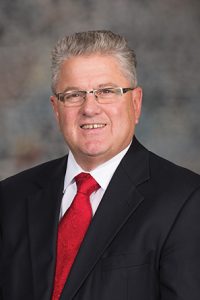Bills would increase funds for judges’ retirement system
The Nebraska Retirement Systems Committee heard testimony Feb. 9 on two bills meant to increase funding for the state’s retirement plan for judges.

LB16, as introduced by Seward Sen. Mark Kolterman, would add a state contribution, beginning July 1, 2021, equal to 4 percent of total compensation of plan members, which would increase to 6 percent beginning July 1, 2023.
Kolterman offered an amendment at the hearing, which would push the start date to 2023. He said the governor’s biennial budget already contains funding for the actuarially required contribution to the judges’ plan for 2021 and 2022. The amendment also would lower the increase in 2023 to 5 percent.
“The purpose of the bill is to create an annual contribution that grows automatically with increases in judges’ salaries,” he said, adding that currently earmarked court fees and member contributions are the only other sources of scheduled contributions to the judges’ plan.
Kolterman also introduced LB24, which would increase the amount of various court fees used to help fund the judges’ retirement plan. The amounts would increase to $6 through June 30, 2021, and then rise annually to settle at $12 by July 1, 2025.
Traffic diversion programs have reduced fee contributions, he said, and the pandemic also has negatively impacted those fees.
“In 2020, the pandemic caused a significant decrease in court fee revenue,” Kolterman said, “including a drop of $400,000 in the last quarter of [the fiscal year].”
Chief Justice Mike Heavican of the Nebraska Supreme Court testified in support of both bills. At one time, he said, member contributions were enough to fund the judges’ plan, but that is no longer the case. Several court fees have not changed since 2005, he said, and minimal and gradual increases are needed.
“Court fees are set by the Legislature,” Heavican said. “They do not change frequently, nor have there been consistent adjustments for inflation or wage increases. As a result, revenue from this source is not guaranteed to grow.”
In written testimony, Spike Eickholt of the ACLU of Nebraska opposed LB24.
“We see court fees as a user fee for those people who are processed through, or prosecuted in, the court system,” he said. “This fee increase, while admittedly minimal, would pass [along] the cost of this bill in a manner that disadvantages the poor and impacts people of color disproportionately.”
The committee took no immediate action on the bills.

